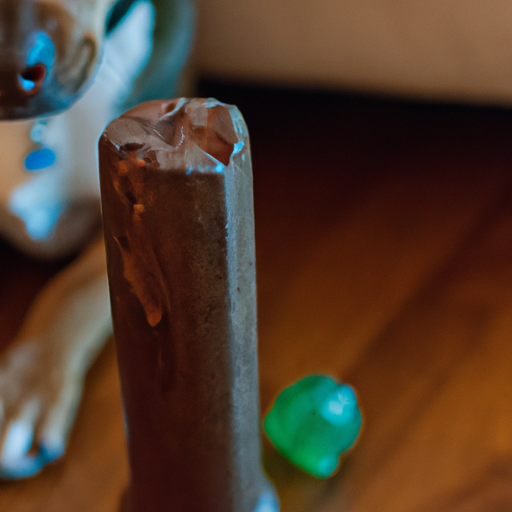Why Do Dogs Chew on Wood?
You might have noticed your furry friend frequently gnawing at your wooden furniture or other wooden items around the house. This might seem like just another one of their peculiar habits, but compulsive chewing can actually be a sign of a deeper issue. Dogs often resort to chewing when they’re bored, anxious, or just need to keep their jaws strong and teeth clean. However, excessive chewing on wood can be dangerous, leading to splinters, blockages, and even toxic ingestion if the wood is treated with chemicals.
Understand the Underlying Causes
To address this habit, it’s important to understand what’s driving your dog to chew on wood. Let’s delve into some common reasons:
- Teething: Puppies often chew on things to alleviate the discomfort of teething.
- Boredom or anxiety: Dogs, especially if left alone for long periods, can become anxious or bored, leading to destructive behavior.
- Lack of exercise: Dogs need physical activity to burn off energy. Without it, they might resort to chewing.
- Dietary deficiency: Sometimes, dogs chew on wood due to a lack of nutrients in their diet.
Implement Preventive Measures
You can’t keep an eye on your dog every moment of the day. But you can take some preventive measures to dissuade them from chewing:
- Dog-proof your home: Remove or protect wooden items around the house.
- Provide chew toys: Invest in a variety of dog-friendly chew toys.
- Increase exercise: Regular walks and playtime can help burn off excess energy.
- Ensure a balanced diet: Consult your vet to make sure your dog is getting the necessary nutrients.
Use Training Techniques
Training your dog to stop chewing on wood requires patience and consistency. Here are some effective techniques:
- Use deterrent sprays: Apply a bitter-tasting spray to the wooden items your dog likes to chew.
- Teach the “leave it” command: This can be an effective way to stop your dog from chewing on command.
- Reward good behavior: Always praise and reward your dog when they choose a toy over a wooden item.
Seek Professional Help
If your efforts don’t curb your dog’s chewing habit, it might be time to seek professional help. A certified dog behaviorist or a vet can provide further insight into why your dog is chewing on wood and offer personalized solutions.
| Type of Help | When to Consider |
|---|---|
| Vet | If your dog’s chewing seems driven by a dietary deficiency or is causing physical harm. |
| Dog Behaviorist | If your dog’s chewing seems driven by anxiety, or if you’re having difficulty with training. |
Frequently Asked Questions
Q1: Can chewing wood harm my dog?
A: Yes. Chewing wood can lead to splinters in the mouth and throat, blockages if swallowed, and toxic ingestion if the wood is chemically treated.
Q2: Why does my dog prefer wood to toys?
A: Every dog is different. Some dogs might find the texture or taste of wood appealing. Try different types of toys to see what your dog likes.
Q3: How long does it take to train my dog to stop chewing?
A: It varies for each dog. Consistency and patience are key.
Q4: What can I use as a deterrent spray?
A: There are many commercial sprays available that are safe for dogs but have a bitter taste to discourage chewing. You can also make a homemade spray using vinegar or citrus.
Q5: What should I do if my dog has swallowed a piece of wood?
A: If you suspect your dog has swallowed a piece of wood, contact your vet immediately. They may need to remove it to prevent a blockage.



